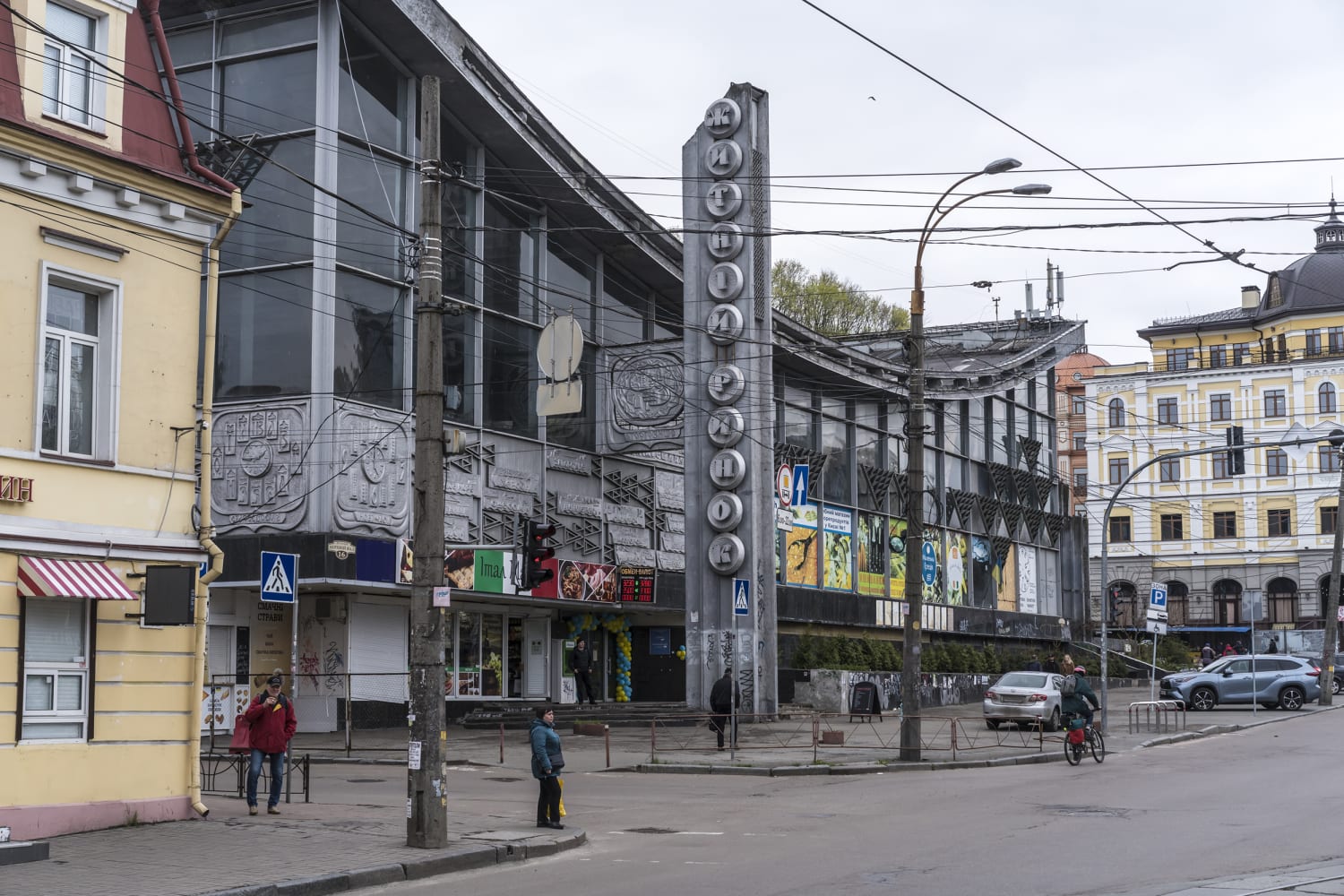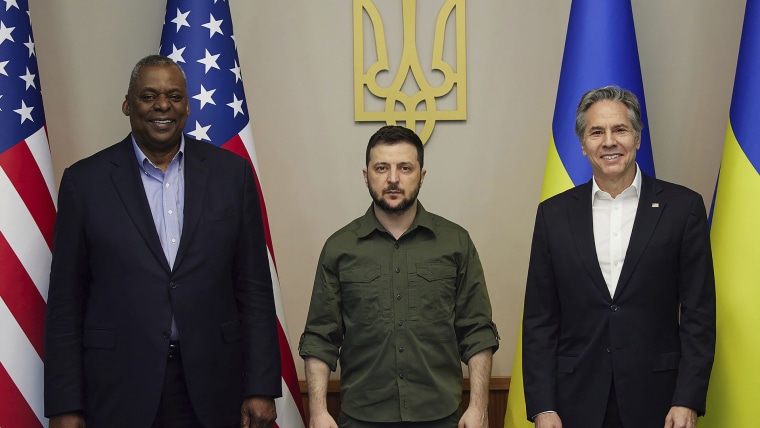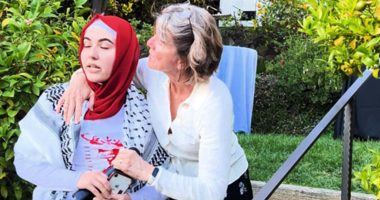KYIV, Ukraine — The sun appeared to sanitize the streets of Kyiv on Sunday, the gray of some brutalist buildings appearing almost white for what felt like the first time since the Russians withdrew.
Many here weaved between tank hedgehogs, armed soldiers and walls made of sandbags in search of a reopened café with outdoor seating or an Orthodox Easter celebration despite the occasional air raid siren.
Still torn between the bloody terrors of a Russian invasion launched through the late winter mud and the desire for the peace of a gleaming spring day, the Ukrainian capital also played host to two senior American officials whose secretive visit betrayed the city’s uneasy new status.
Secretary of Defense Lloyd Austin and Secretary of State Antony Blinken followed a series of European leaders in traveling to the Ukrainian capital.
It was a physical display of their belief in the country’s defenses, which are now being tested anew in the east and south after holding firm against the Kremlin’s forces around Kyiv, where residents are pushing to return to some semblance of prewar life despite the lingering trauma — and threat — of Russian attacks.
Blinken admitted that he and Austin weren’t able to visit much of Kyiv or speak to many people because of security concerns and their focus on speaking with President Volodomyr Zelenskyy regarding his military and diplomatic needs, but he said the little he did see appeared to reflect a capital trying to shake off what it had endured.
“We certainly saw people on the streets of Kyiv, evidence of the fact that the battle for Kyiv was won and there is — what looks on the surface, at least — to be normal life in Kyiv,” he said.
“But that’s in stark contrast to what’s going on in other parts of Ukraine.”
That contrast is also felt below that surface by the residents of the capital, as they seesaw between a shellshocked reality and the dream of a past life when the bustling city enjoyed open bars and busy restaurants.
“Right now there’s an opportunity to work and hire people, pay taxes, and so we’re going to do that for now,” said Vitaly Kizichenko, the owner of a popular bar called Pink Freud in Kyiv’s historic Podil neighborhood. “But if word comes about the Russians, we’ll close down again. We’ll open up a soup kitchen and a humanitarian aid center and protect people here again. That’s nothing new.”
Kizichenko was seated at a table in his bar on the west bank of the Dnieper River as he told NBC News about the dozen or so people who hid in the basement of Pink Freud for weeks while this city was under Russian fire. They had to stay hunched over because of the low ceilings, and they made their beds next to clanging pipes, between storage freezers and on cold concrete.
When it was safe, they cooked hundreds of meals each day for soldiers and residents of the neighborhood in the bar’s small kitchen, they discussed potential escape routes in case the city fell, and they made Molotov cocktails with neighboring businesses in the small courtyard they shared.
But the threatened Russian ground assault on the capital never materialized.
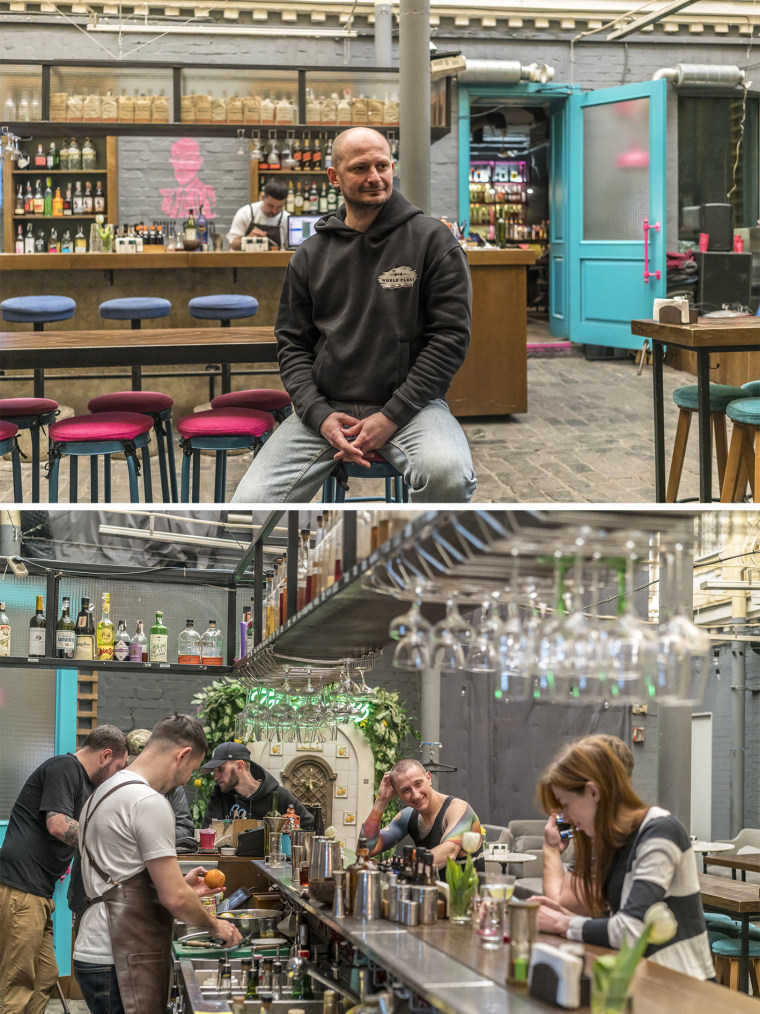
Now, two months after Moscow launched its invasion and Kyiv residents saw their first missile strike up close, Kizichenko, 36, has opened the doors of his ad hoc bomb shelter to the public once again and returned the site to the popular bar it once was. He hopes to bring back live music and see it packed shoulder to shoulder again on weekends, though he can only sell booze until 4 p.m. under the rules of the city’s martial law.
Still, he feels mixed about the pace at which people who fled are returning and said he worries the Russians could come back suddenly. It’s a view shared by city officials who have pleaded for residents not to return until the situation is deemed safe.
“I don’t like the whole sense of revival we’re seeing because it feels like people are not taking the war very seriously,” Kizichenko said as he sat next to a man packing a box of rifle scopes at a table in the bar. “Those who come back right now did not witness what Kyiv was like during the siege, and they have this twisted understanding of what the war is.”
Many residents who stayed recall watching artillery shells explode on the city’s horizon, listening to the soft crack of distant machine-gun fire and learning the difference between the boom of the city’s air defense systems working and the boom of a missile landing in a neighborhood nearby.
In quiet moments and when an internet connection was available, they would sit in the dark committed to what one Kyivian described as “true existential doomscrolling.” They read through social media posts and articles they hoped would provide some explanation for the Russian attacks on their once-peaceful city or offer some information that would keep them safe.
“A lot of the adrenaline of those first days is dwindling now, and there’s this kind of void or feeling of emptiness because you realize you’re not in immediate danger anymore but you don’t feel safe and don’t know what the future holds,” said Yevhen Spirin, 33, the editor-in-chief of the Ukrainian news and politics website Babel, which he operated from the basement of Pink Freud with his colleagues during the siege.
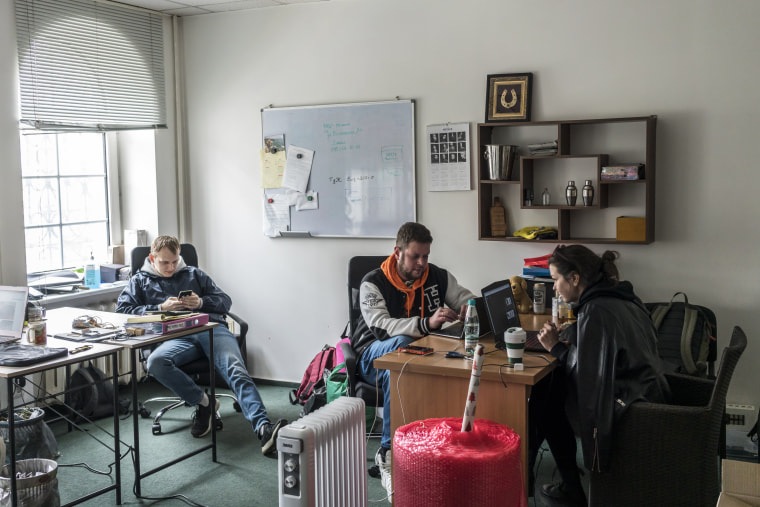
“For example, now when I might hear a tram coming down the street,” added Spirin, who is from the Donbas region, where the war is now focused, “I sometimes feel compelled to run because the noise reminds me of a shell or missile exploding.”
But others, largely those who didn’t experience those weeks of terror, feel differently.
Yuliya Kolot, 24, was thrilled to be back in Kyiv after leaving for a safer village in the west. She joined the territorial defense there and mostly completed administrative tasks, but Kolot said she felt much more comfortable behind the counter of the wine store where she now works.
“It’s a relief to be back in Kyiv, to be back at work,” she said, adding that she still hoped to do some volunteer work. “It’s a signal for everyone that the country is still operating, business is back and maybe it will be OK.”
Still, many could not ignore that the war was still raging in other parts of the country. Though they could no longer see the realities of the Russian invasion directly with their own eyes, the horrors committed by the invading armies in the east did not wander far from their minds — nor did their desire to support their country and its military.
At a popular nightclub and venue space about a half-mile west of Pink Freud, dozens of people gathered over the weekend for a tattoo fair and fundraiser for the defenders of Mariupol, who have been cornered in a steel plant with women and children sheltering alongside them from Russian airstrikes.
The blue and yellow of Ukraine were near every artist’s gun, offering patriotic tattoos in various styles: the flag, the Ukrainian trident, a gun shooting sunflowers and other designs. All a person had to do was provide a donation of about $15 to the cause to get a tattoo of their choosing.
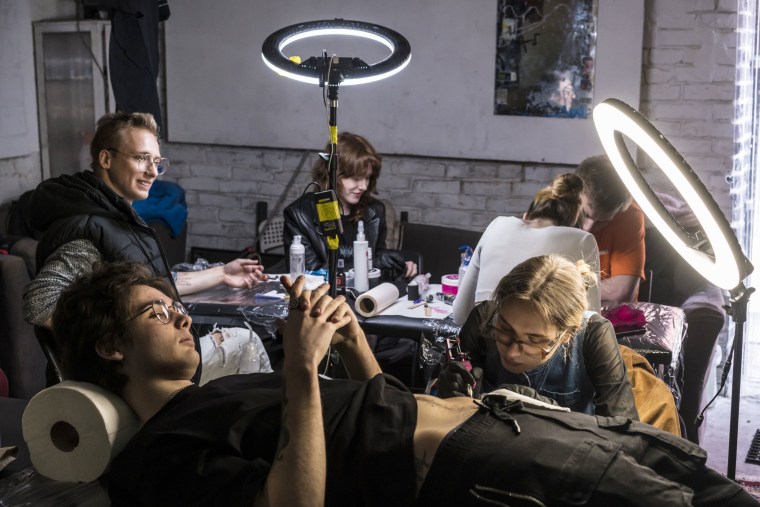
Oleksandr Filipchenko, 36, a tattoo artist known by the moniker Sasha Animal, organized the fundraiser, and eight other artists volunteered to provide the tattoos.
Filipchenko, who said he was intensely grateful for the support of the U.S. and who is covered in tattoos from the palm of his hands to his temples, said he was beginning to see the return of his city, which he loves, but he was unsure what would come next.
“We’re watching the revival of Kyiv, but it’s really bigger than that because a new city is being formed,” he said. “It is very difficult to say what it will evolve into in the future because the war is not over, so the whole experience is still very much in progress.”
Source: | This article originally belongs to Nbcnews.com


